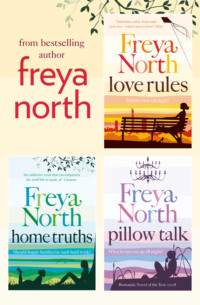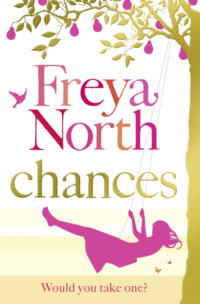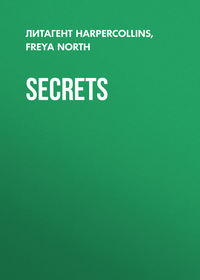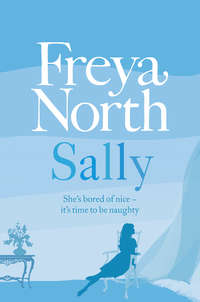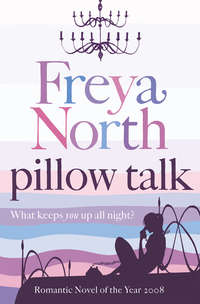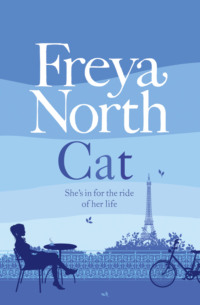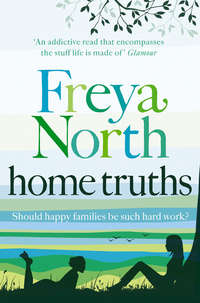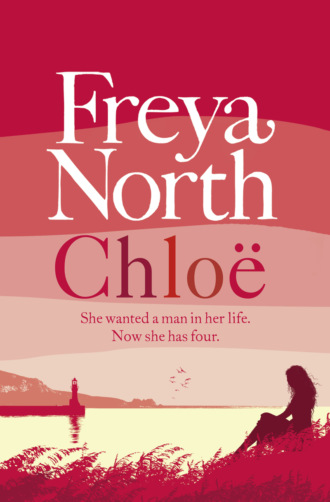
Полная версия
Chloe
‘Jocelyn never liked you much,’ she told him while he grinned back at her, suave and vain. She pushed her thumb over his face until it was covered completely. ‘And I never actively sought her approval because deep down I think I knew there was little that warranted it.’
Chloë kept her thumb over the photograph and drummed the fingers of her free hand against the armrest of the chair. Though now headless, Brett’s stance, with hands on hips and one knee cocked, spoke reams of his arrogance and vanity. She smacked her hand flat over the photograph so that only a palm tree and an innocuous tuft of hair peeped through. She ceased her finger thrumming and stared straight ahead at nothing at all and thereby deep into the very nub of the matter. Chloë placed the photograph frame face down on top of the television and flicked aimlessly through the channels. Santa Claus met her on every one and Chloë was thankful that she did not have satellite.
Knowing that Brett could swagger in at any moment, brandishing his infuriating trademark ‘Ciao’, produced little spurts of adrenalin which made her pace about and fiddle with things that could well have been left just so.
The curtains are hanging fine, Chloë; there is no fluff on that cushion. The pictures are dead straight.
Poor girl, she’s tried twice before to sever her dealings with Brett. The first time, she located him on his mobile phone but fumbled over her words so badly that she ended up apologizing: ‘Oh nothing, it’s nothing, I’m just being daft.’ The second time, Brett beat her to it, yet while he was flourishing his final ‘ciao’s, Chloë found herself pleading for another go.
‘The thing to do,’ Chloë said to Mrs Andrews, ‘is not to mince my words.’
‘Precisely,’ her confidante encouraged, ‘straight to the point. Plain English. No beating about the bush. And no metaphors!’
Brett has arrived and he fills the doorway with his frame, his bulky silhouette backlit from the light in the communal hall.
‘Ciao!’
‘Quick, close the door – it’s bitter!’ says Chloë a little too cheerily.
‘What a day, I’m so stressed out,’ he growls, slumping into the chair and up-ending the photograph frame so that he can admire himself, tanned and in Jamaica, in December and in Islington. ‘What a frig of a day.’
He kicks off his shoes, stretching his legs out, imposing on Chloë’s space, spouting a soliloquy peppered, as usual, with ‘I’ and ‘me’.
‘What’s cookin’? I’m starvin’.’ Chloë hates the way he drops his ‘g’s. She fiddles with picture frames and finds fluff on cushions. He checks the messages on his mobile phone. Something inside Chloë is burning and welling. It’s Jocelyn. It’s Mrs Andrews. ‘Look at him,’ they seem to be spurring Chloë, ‘the repugnant lump!’
‘Brett,’ Chloë hears her voice suddenly escape the safety of things left unsaid, ‘I have something to tell you. There’s something I need to say.’
‘Yeah?’ he twists his toes and burps under his breath.
‘You know bread?’ Chloë starts, shaking down a few locks of her hair to hide behind.
‘Huh?’ He regards her suspiciously, curling his lip. ‘Bread?’
‘Mm!’ she agrees, tucking the curls temporarily behind her ears. ‘Once it’s stale, it can never truly be revived. Not even if it was once quite tasty.’
‘I’m bloody star-vin’,’ Brett snaps, caressing his belly which rumbles like the thunder slowly etching its way across his brow. ‘Are you tellin’ me that’s all there is? Bread that’s gone off?’
‘That’s what it is. Was,’ Chloë reasons, suddenly radiant, ‘and well past its sell-by date.’
It was only when Chloë heard the communal door bang downstairs that she allowed herself to sink into the chair and shake uncontrollably. After a while she picked up the photograph frame and chuckled; laughing out loud until tears of mirth oozed from the corners of her eyes and her ribs creaked for mercy.
I did it!
‘Mrs A, I did it! I really, actually, did.’
‘You did indeed, dear. Metaphors and all.’
Carefully, Chloë removed the photograph and tore it methodically into strips which she then twisted and coaxed into an origami star – a skill she learnt many years before not knowing quite when it would have its use. She contemplated the spiky form and rotated it, catching a little bit of Brett’s hand here, a nose and half a mouth there; an elbow, part of a tennis shoe, a palm frond. Capped teeth.
In the ball of my hand, let alone under my thumb!
‘Bye-bye,’ she sang, tipping the origami from hand to hand. ‘The first time I ever stood up to you was ultimately the last too!’ She listens to the silence and loves the peace it promises. ‘Were you that “awful”?’ she whispers at Brett’s faceted face. ‘Yes, I suppose you were.’ Chloë went over to the window, peering intensely up at the ink-navy sky wishing for a star. ‘Bossy,’ she clarified, holding the origami star aloft and catching a glance of Brett’s mouth; ‘tactless,’ she shuddered, ‘chauvinistic, too.’ She crossed to the mirror and sprung ringlets of her hair through her fingers, remembering how Brett had referred to it, when wet, as ‘positively pubic’. Well Chloë, he’s losing his!
She settled snugly into the armchair and contemplated the fractured photograph once more. ‘You were but a cheap processed oaf,’ she said, proud of the pun, ‘and I think, actually, I’d rather enjoy something more wholesome and nourishing now.’ With that, she tossed the splintered, diminished image of Brett deftly into the waste-paper basket.
Just the ‘lousy’ job now, Chloë; time to free yourself from the self-obsessed shackles of the lowly paid and not very good inner London Polyversity where you’ve shouldered the role of student-communication-liaison-welfare-officer for four thankless years. Think of it! No more students-in-need, the Sins that frequently run amok in the already cramped Islington studio you’ve been renting.
Chloë’s flat was presently overrun by an eighteen-year-old first-year anorexic, a second-year suicidal with girlfriend trouble and a third-year in the throes of a pre-finals breakdown. They littered her flat and demanded round-the-clock counselling and unrestricted access to fridge (apart from the anorexic) and telephone (often simultaneously). Demanding indeed, with pay and praise as paltry as they were.
Finally, on a turbulent December afternoon just a day away from the end of term, bolstered by Jocelyn’s legacy and inspired by the map of the United Kingdom, Chloë has decided to resign. She has her eye on a moment to savour and worries that if she procrastinates, or changes into something more becoming, the moment would be lost. Then Lent term would be mercilessly upon her. And Wales would remain unopened. Wales would be forgotten. Closed.
She could not possibly insult Jocelyn so.
And there is no law against handing in one’s notice wearing jeans and trainers that should be restricted to solitary evenings safely inside.
‘But Chloë, the students need you – you’re their lifeline. If it’s a rise you want, we could, at a stretch, offer you one per cent over three years?’
Chloë is surrounded by lino and melamine, strip lighting and orange plastic chairs. They are chipped and unsteady. Rain courses relentlessly down the steel-framed windows. A small puddle is forming on the flaking grey window-sill. It is unbelievably drab and depressing and Chloë feels all the more resolute for it. She rejects the pay rise and leaves guilt firmly in the room when she closes the door quietly behind her.
Well, if Chloë Cadwallader is not to be a student-communication-liaison-welfare-officer, with a boyfriend called Brett and a rented studio in Islington, what is she to be?
On Christmas Eve, she has absolutely no idea. And now there is no Jocelyn to turn to for advice. And yet, was not her godmother still overseeing Chloë’s education and welfare with as much concern and motivation during her death as she had during her life? Was not her legacy precisely that there was no better place for Chloë to start in the worldwide scheme of things than in the great British Isles?
‘Europe,’ Jocelyn had once said to Chloë, ‘is enthralling, the United States vast. Africa is captivating, Asia a jewel. Australasia is glorious and fiendishly far away but Britain, Britain is the garden of the world with secrets of joy lurking in every tiny nook.’
Jocelyn’s bequest was that her god-daughter should discover and share those secrets. Who knows what she might find. And where. How exciting and what an opportunity. Grab it! Go! Have you gone yet?
Christmas Eve in Islington. Chloë has pinned Jocelyn’s map above her bed and as she gazes at the four countries, she decides that now is the time to greet Wales. With Mr Andrews’s encouragement, she extends a tentative hand out towards the envelope. But she stops midway and wonders if it is all a little too far-fetched. So Jocelyn had deemed Chloë’s job deplorable and had thought Brett loathsome, but was a voyage to the distant corners of the United Kingdom really the answer? Was it a logical solution? Was it necessary?
Was it even sensible?
(‘People who are forever sensible are interminably dull, Chloë sweet. As drab as a black brolly in Islington.’)
Was it a good idea? Realistically?
‘I’ve quit job and jilted the boyf – won’t that do?’ Chloë says aloud with just a touch of a whine to her voice. ‘What if I just move away from Islington – say, try Putney? How about I look for a job in a nice private firm – market research or something? Mr Andrews, please advise!’
Mr Andrews, however, remains silent, his grin stony and fixed. And Chloë suspects that there is little point consulting Mrs Andrews who appears, on Christmas Eve, the sort of lady who would not speak unless spoken to but might, with a giggle and a glance, sing a little ditty if cajoled and flattered.
Chloë does not want entertaining, she wants someone to tell her what to do. She can no longer reach out to Jocelyn and seek her advice.
And yet it is Jocelyn’s advice that is in dispute today.
Wales, still enveloped beyond reach, is yet tantalizingly close.
‘I’ll start packing tomorrow,’ Chloë says decisively.
Mr Andrews cocks his rifle approvingly, Mrs Andrews giggles.
THREE
William bundled the contents of the holdall into his washing-machine, retrieving his toothbrush and razor at the last minute. He waited patiently for the whir and clicks to commence and then watched the water trickle shyly over the laundry. Satisfied that the cycle was under way (it only ever seemed to start under paternal encouragement) he confirmed that there was indeed nothing in the fridge and left the kitchen for his studio.
The studio was a stone’s throw from the kitchen, which was itself a pebble’s roll from everywhere else; there being neither corridors nor landings at William’s cottage. Incongruously called Peregrine’s Gully, the cottage was compact and thickset. It reminded William of an Exmoor pony; essentially native, ruggedly pretty and inherently suited to its environment. It sat, small and brave, in a gentle acre meadow of its own, flanked on one side by a scar of gorse, on the other by the poor land petering out to the cliff edge. Local sheep often gazed longingly at the grass on the inside of William’s fence and while he was not averse to a visit and a polite nibble, a bellow from Barbara invariably saw them off.
Barbara was a goat who had sauntered in through a gap in the fence soon after William had arrived at Peregrine’s Gully. He had shooed her and chased her and smacked her rump with a slipper but she had stood her ground, twitched her beard and fixed her yellow eyes on him, lovingly and unrelentingly. He had growled at her, he had waved wooden implements at her and he had ignored her, but still she stayed, nibbling the edges of the grass in a dainty and ingenuous manner. None of the farmers claimed her and a notice in the local paper brought no one. So she was invited, begrudgingly at first, to stay. William called her Barbara after her bleat.
Barbara adored him; following at his heels whilst he pottered around the garden, standing for hours with her forelegs just inside the studio door while he worked, looking up at him conversationally when he sat to eat in the kitchen, staring alongside him at the washing machine as he coaxed it to work. Barbara gave the postman short shrift and frequently chased cars down the drive or stood defiant, stamping, right in the middle as they approached. She loathed Morwenna. In the early days, she trod on her, chewed her clothing and defecated as close to her as she could. Now, she just glowered at her witheringly or ignored her entirely whilst making eyes at William. Invariably, Morwenna brought carrot butts and lettuce ends as a peace offering, sometimes even ginger-nuts as a bribe, but these placated Barbara only temporarily.
It was the windows at Peregrine’s Gully that had decided William to rent the property. They had good deep sills affording place and space to his ceramics, and provided some respite from the invasive winter chill. Of the two small bedrooms upstairs, he slept in the one which looked out to the cliffs and onward to the sea. It contained only a bed, a tea chest for a bedside table and the incongruous chintzy curtains that had come with the cottage. The other room, however, was stuffed with the stuff of bedrooms: guitars, books, an enormous mirror framed by driftwood for which he had exchanged a nicely glazed set of mugs, an oversize whisky bottle half full of small change, two chests of deep drawers stuffed full of thick jumpers, and a Victorian oak cupboard he had bought for a song wherein the rest of his clothes were housed. Such items, essentials or paraphernalia, were banned from his bedroom for it was the bare white walls, the uninterrupted run of floorboards, which provided him with the empty canvas, the armature, for new works to take root in the fertile hours of daybreak.
Downstairs, the front door opened directly into the sitting-room but William only ever used the craftsmen’s entrance at the rear of the cottage. Consequently a thick Turkish rug bought at great expense and inconvenience whilst backpacking some years ago, hung down from door frame to floor. The back wall was papered with books which sat crammed on bookshelves William had built by hand, leaving a gap of just an inch between tallest book and ceiling, and between bottom shelf and floor. He was not bothered about any alphabetical or thematic ordering but arranged the volumes according to height and the spines’ aesthetic appeal. Viewed from the other end of the room, the books rose and fell in a sinuous sequence, rather like organ pipes or ordnance survey contours. Between the rug-door and the book-wall, a large hand-built terracotta pot four foot tall sat fat, proud and burnished to perfection. To the side of it, a selection of umbrellas and walking sticks, whose provenances were long forgotten, were propped precariously. The rest of the room was taken up by two incredibly easy chairs bought at auction and in serious need of reupholstering, and a stout Scandinavian wood-burning stove. Still warm, despite William’s three-day absence. It ought to be – it cost William almost as much as he made last year.
His studio was his haven and his true home; the fact that the cottage was included in the rent was merely an added bonus. Built by a contemporary of Bernard Leach, it had been designed with no other purpose than to be a room conducive to the making of pottery. There were two anterooms, one for glazes and one being the damp room where ongoing pots could rest. The main room housed William’s wheel at one end, an immensely long trestle table and a high, plaster-topped console on which clay could be kneaded and wedged in preparation. Shelves ran around two walls carrying finished pieces, experiments, failures, stimulus material such as skulls and pebbles, and a wealth of books on ceramics. The building was designed to allow its craftsman unparalleled access to the views outside, thus the other two walls were predominantly windows. Facing the trestle table at which William usually stood and worked, the windows reached from ceiling to floor and provided an inspiring panorama across the garden to the moors; the windows in the wall by the wheel were lower so that a potter throwing could still see where land became air and the great sea started. The roof itself was essentially one big skylight. The studio was never cold for the kiln at the far corner kept it cosy.
That afternoon, as the veiled December sun fizzled out over the sea to drop down beyond the horizon and hide until noon the next day, William prepared some vivid blue slip and checked on his pieces in the damp room. His mind was elsewhere and yet nowhere at all. Momentarily it flitted across Morwenna before going on a little excursion to London and the humming girl, where it stayed a rueful while to be brought back to the present by Barbara’s insistent bleat. William found it was quite dark and he sat on the steps of the studio tugging the goat’s ear and asking her what he should do. Her eyes glinted luminous, unnerving even, so he smacked her rump and scratched her beard before heading off for Morwenna’s, driven as he was purely by his groin. Driving guilt to a far-flung corner of his conscience.
‘Hungry, were you?’ Morwenna fought to contain her delight. A hundred and eighty pieces for the Bay Tree Bistro looked promising, as did an orgasm or two.
‘Not really – well, not hungry for food,’ qualified William with an overdone lascivious wink. He had always mixed up her money-look with her lust-look and she was so obviously wearing one of them now. Unfortunately, he could not decipher which for both incorporated moistened, parted lips and a slight glaze to the eye. He strode over and kissed her deeply, allowing his hand to travel expertly if routinely over her torso. He ran her pony-tail through his hands and looked at her face. Behind her smile he saw that her eyes were quite flat. Or were those £-signs, superimposed cartoon-like over them?
‘Morwenna,’ he said in as much of a drawl as he could muster convincingly, stepping towards her and kissing her as persuasively as he could.
And so they made rather unsatisfactory love. William’s eyes were slammed shut throughout while Morwenna’s were fixed on the lampshade, waiting for a climax that never came and was not worth simulating. Afterwards, they thanked each other politely, assuring that it had been good for them, how was it for you.
You shouldn’t have to ask, thought Morwenna as she rose and went for her dressing-gown.
You shouldn’t have to pull your stomach in like that, thought William as he watched her.
‘Stay?’ she asked, hugging her dressing-gown about her, quite keen for him to go.
‘Not tonight,’ William replied, as lightly as he could.
As Morwenna sipped at very sweet cocoa, she beckoned her cat to her lap. William, William. She gazed at the wallpaper without seeing its pattern. William Coombes was her lover and her livelihood; thirty per cent was thirty per cent after all, and his burgeoning reputation had seen his prices rise healthily. As much as she loved him, and love him she did, she loved the idea of him more.
She had held the reins and guided William through an exhilarating run of discovery from which she had benefited too. Multiple orgasms and thirty per cent. Now they were on a downward slalom heading nowhere fast. The reins were gone from her hands and yet she could not remember letting them slip. Who held them now? Not William, for sure. The shift of power was now squarely with him and yet he was using it quietly to ride away from her.
It was the creeping indifference she could not abide. His proclamations of affection were dwindling and empty and, as she confronted the truth with only her cat on her lap for comfort, she knew that he made them because he knew it was what she wanted to hear. Tracing a large vein threatening at her calf, Morwenna admitted silently with forlorn resignation that William was no longer in love with her. Her cat fixed his yellow eyes on her, his pupils expanding as he swallowed her in to his unnerving gaze. What could she do but acknowledge out loud that William simply no longer loved her? They had grown apart because he had grown up and she had grown old. She had also witnessed his growing disaffection with Saxby Ceramics.
‘But Morn,’ he had said under his breath once or twice, ‘I actually want to make the pots I want to make. Not made to order, made to measure, made to be dishwasher safe and microwave proof.’
‘You will, you will. Once you’re up and running,’ she had said lightly. But she could not deny that his career as a potter was now establishing itself and that his preferred frugal lifestyle could most certainly be maintained by the sale of a one-off studio piece every now and then.
‘Oh well,’ she said out loud in the plaguing silence of her room, ‘I still have you and you love me unconditionally, don’t you puss? You give me a hundred per cent, never mind thirty!’ The tabby kneaded her lap in enthusiastic camaraderie before absent-mindedly springing his claws, driving them deep into Morwenna’s thigh. She gasped with the shock and the hurt of it, hurling the animal off her lap, rubbing her thigh hard. The cat slunk reproachfully to the window-sill where he knocked over a photograph of William and gazed defiantly away from her.
‘You and him both.’
William arrived back at Peregrine’s Gully at midnight. He felt wretched because he knew he had used Morwenna, and thereby abused her. He cursed his conscience for having returned only when his testosterone had levelled. He cursed testosterone. The humming girl was far from his mind, as was the echoing urn in a river of red. Going to the side of the cottage, he went directly to the studio. Barbara, a little bleary, was none the less delighted to see him and chewed her cud thoughtfully as he fetched a block of terracotta clay and began to knead and wedge it. Pulling it towards him and then thrusting it away, he worked the clay until the wetness had gone and a cross section revealed no air pockets, just a smooth dark red-brown slab. Good enough to eat. My, he was starving. It was gone one in the morning and he was cold; the hunger that he had used as a pretext to Morwenna now gnawed at his stomach and his soul.
FOUR
Though Chloë’s entire effects would have taken but a couple of hours to pack, it really did not seem an appropriate activity for Christmas Day. It could wait. Tomorrow, perhaps; Boxing Day after all. The easiest way for Chloë to block out the lack of Jocelyn was to travel backwards and pore over memories of Christmases past. Yuletide celebrations at her godmother’s had been peppered with good cheer and sumptuous refreshments, and peopled by the most colourful of souls. Chloë customarily took a place in the background, happily overshadowed by the mosaic of eccentricities that surrounded her. She was oddly comfortable with her shyness when at Jocelyn’s, surrounded by a host of fantastic characters scattered liberally through the house. There was the white witch, the man with the panama and the macaw, the Russian with the balalaika, the ageing French actress. But best of all, the septuagenarians, Peregrine and Jasper; made up to the nines and immaculately coiffured. (‘We’re the real Queens of England, we should be on the telly at three, don’t you think?’) Some called her Cadwallader, the white witch absent-mindedly called her Cleo, Peregrine and Jasper called her ‘Clodders’ as they had since she was small. She did not mind at all.
Chloë would watch with awe as Jocelyn swirled around her guests, distributing drink and food, compliments and witticisms with grace laced with abandon. Eyes dark with kohl bought in Petra, enviable cheekbones dusted with rouge from Paris and nut-brown skin bathed in Mitsuko, Jocelyn breezed about enveloped in velvet or swathed in chiffon, bejewelled extravagantly, bestowing on all her immense gift of effortless hospitality. Everyone was swept along on the tide of her countenance. Every so often and without making a scene, she would swoop down beside Chloë, usually squeezing next to her on the armchair to lavish kisses and furtive winks and nudges; ‘I’m Jocelyn jostling!’ she would pip in her ear. Chloë felt treasured indeed.


